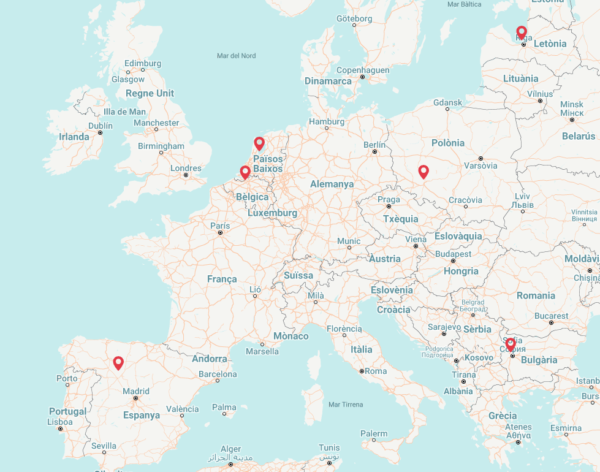We are part of a new European project!
From the 3rd to 6th of April we participated in the consortium meeting of the new project FOODCITYBOOST in Amsterdam. The project focuses on the integrated assessment of urban farming impacts and policies to further boost sustainable urban agriculture development taking into account the existing and potential links to urban, peri-urban, and rural areas.

FOODCITYBOOST is coordinated by the Vrije Universiteit Amsterdam and the partnership is made up of 20 distinct actors from 9 different countries, each bringing unparalleled expertise to a common table. Included are 6 Living Labs scattered around Europe that will be the focus for the project research: Riga (Latvia), Sofia (Bulgaria), Valladolid (Spain), Almere (Netherlands), Wroclaw (Poland), Flanders and Brussels (Belgium). The Living Labs have diverse scopes, systems, and stakeholders with a great variety of urban and peri urban production types, and are supported by nearby scientific partners.

The meetings organized along the three days have enriched and enabled the first steps to reach our project goals which are:
- To understand policy, governance, resources power, and the roles that different actors play in various types of Urban Farming.
- To address environmental, economic, and social benefits and risk of Urban Farming and its spillovers to non-urban land.
- To assess the impacts of Urban Farming development on key social, economic, and environmental dimensions capturing spill-over consequences in the urban-rural fringe and their communities.
- To co-design policies that will foster the development of beneficial types of Urban Farming in different regions.
The Sostenipra team will be leading Work Package 3 for the duration of the project in the next four years. This WP concerns the creation of evidence of the environmental impacts of urban and peri urban agriculture and the potential spill-over effect into neighboring areas (urban and rural).
This evidence will be defined in three areas and through three methodologies:

- An environmental analysis through life cycle analysis
- A soil health determination through sampling and on-site visits
- A biodiversity determination through a two-year on-site assessment.
We are very excited to be part of this movement and to create the evidence for change!
Keep track of our activities though the project’s social media and webpage:
Webpage | Facebook | Twitter | LinkedIn | YouTube

Funded by the European Union. Views and opinions expressed are however those of the author(s) only and do not necessarily reflect those of the European Union or the European Research Executive Agency. Neither the European Union nor the granting authority can be held responsible for them.
Funding for this research has been provided by the European Union’s Horizon Europe research and innovation programme FOODCITYBOOST (Grant Agreement Number 101132315).
